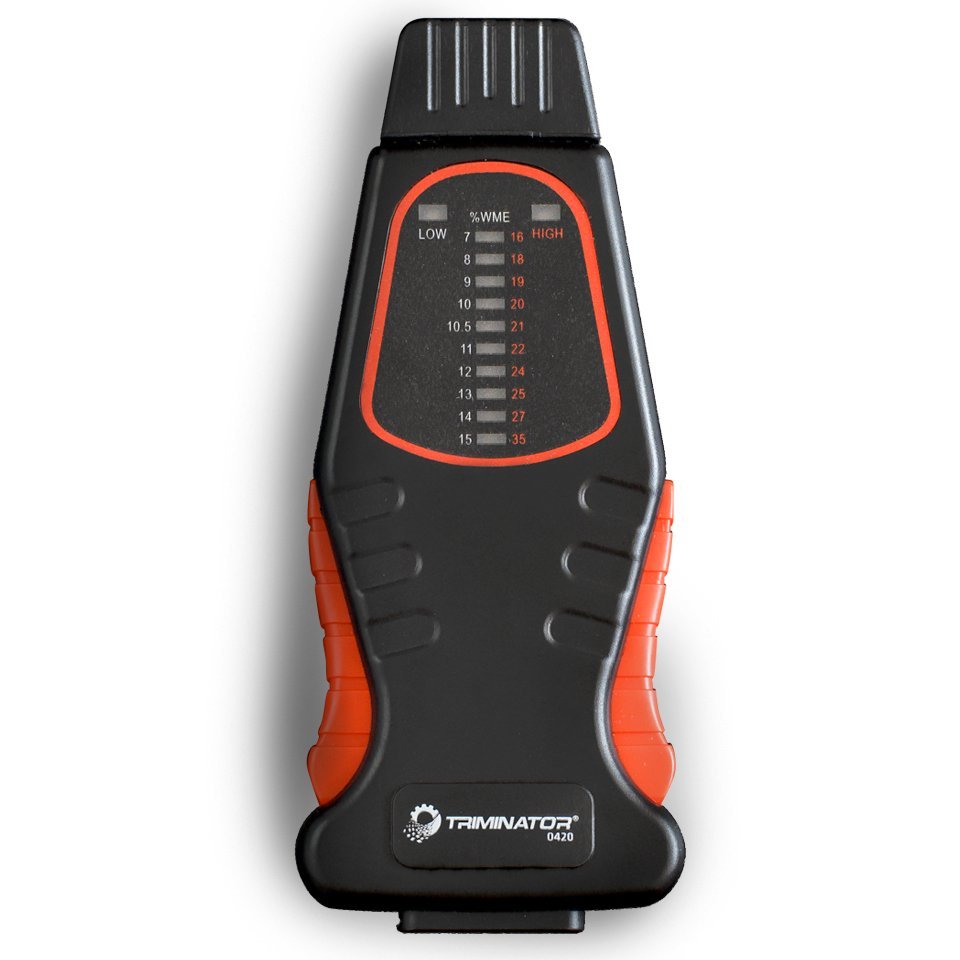The Ultimate Overview to Moisture Meters: A Comprehensive Review and Exactly How They Can Save You Cash
Moisture meters offer as crucial tools in spotting and keeping track of moisture material in products, helping in preventing expensive problems and making certain the top quality of products. Recognizing the subtleties of different types of dampness meters, their applications, and the possible cost-saving benefits they supply can be a game-changer for businesses and professionals alike.
Sorts Of Dampness Meters
Numerous kinds of moisture meters are readily available for different applications in different markets. One usual type is the pin-type wetness meter, which measures the electric resistance in between two pins inserted into a product. This kind is ideal for timber, drywall, and various other building products. Pinless dampness meters, on the various other hand, usage electromagnetic sensing unit plates to scan a larger location without triggering damages to the material's surface area. Moisture Meter. These meters are excellent for quickly evaluating wetness degrees in huge areas such as floors and wall surfaces.

Infrared dampness meters gauge the thermal residential properties of a product to determine its wetness material non-invasively, making them helpful for applications where pin or pinless meters may not be appropriate. Understanding the various types of dampness meters available can aid sectors pick the most suitable tool for their particular moisture measurement requirements.

Benefits of Making Use Of Moisture Meters
Wetness meters use very useful advantages in properly assessing and keeping track of dampness degrees in varied products and environments. One of the main advantages of utilizing wetness meters is the prevention of possible damages triggered by excess dampness.
Furthermore, using dampness meters can cause increased power performance. By recognizing areas with high dampness degrees, such as leakages or inadequate insulation, modifications can be made to boost power conservation and lower utility costs. In farming settings, dampness meters play an important function in optimizing plant returns by allowing farmers to keep track of dirt moisture degrees and make educated watering choices. On the whole, the advantages of making use of moisture meters span throughout various sectors, offering cost-effective services and advertising better high quality control methods.
How to Choose the Right Moisture Meter
When choosing a moisture meter, it's crucial to guarantee that the meter is ideal for the particular material you will certainly be testing. Different products have varying electrical properties that can influence moisture analyses, so picking a meter designed for your product is vital for exact outcomes. By thoroughly assessing these factors, you can pick a wetness meter that satisfies your demands and gives accurate wetness measurements for your projects.
Correct Methods for Moisture Meter Usage

Expense Savings With Dampness Meter Applications
Exactly how can the tactical utilization of moisture meters lead to substantial price savings throughout numerous markets? In the agriculture market, wetness meters help in useful reference identifying the optimal time for harvesting crops, preventing over-drying or excess dampness that can affect the final item's top quality.
Likewise, in building, wetness meters help avoid costly damages by finding wetness degrees in building materials, such as wood or concrete, which can cause architectural issues if not dealt with promptly. By recognizing trouble locations at an early stage, service providers can take rehabilitative actions to avoid comprehensive repairs or substitutes, inevitably conserving money and time.
Moreover, in the food handling sector, wetness meters are necessary for checking product top quality and guaranteeing compliance with safety laws. By accurately measuring dampness content in food, producers can protect against spoilage, maintain quality, and decrease waste, resulting in substantial price savings. Overall, the strategic application of dampness meters is a useful investment that can cause considerable cost reductions and improved performance throughout different markets.
Verdict
In final thought, wetness meters are important devices for measuring and identifying moisture levels in numerous materials. By making use of the right moisture meter and following appropriate methods, users can efficiently avoid pricey damages caused by excess dampness.
Moisture meters serve as this page vital devices in spotting and you can try here checking moisture material in products, aiding in stopping costly problems and making certain the high quality of items. Infrared wetness meters gauge the thermal homes of a product to identify its moisture web content non-invasively, making them valuable for applications where pin or pinless meters may not be ideal.Wetness meters provide very useful advantages in properly checking and evaluating wetness levels in varied materials and settings. In farming setups, wetness meters play a critical role in maximizing crop yields by making it possible for farmers to keep track of dirt wetness levels and make educated irrigation choices.In conclusion, moisture meters are valuable tools for gauging and detecting moisture degrees in different materials.